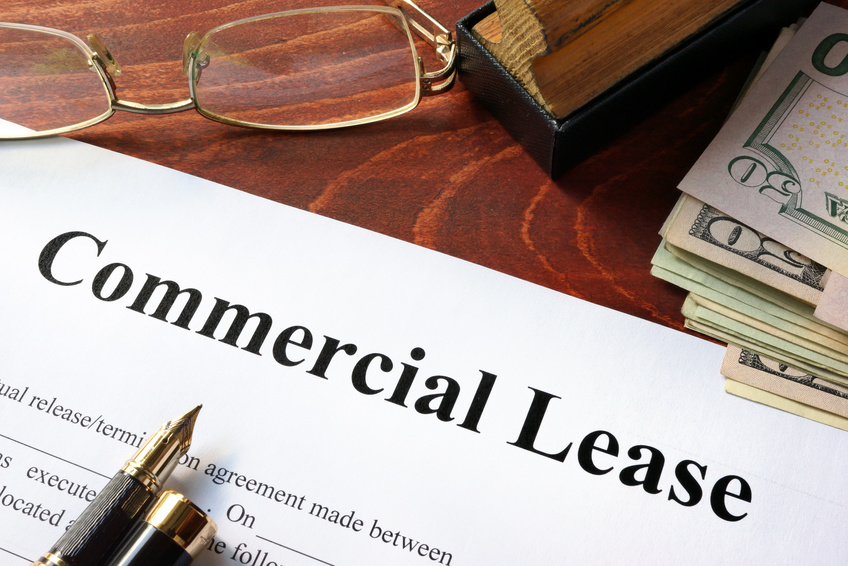 In the practice of leasing commercial real estate, full payment and performance personal guaranties (individual or corporate) are not uncommon, and are often an integral part of the transaction. When dealing with a newly-formed tenant entity or a marginally creditworthy tenant entity, a personal guaranty of the lease by another party is often required by the landlord to provide additional security for the tenant's payment and performance obligations under the lease - namely, another party or entity to pay or perform the tenant's obligations in the event the tenant fails to do so itself.
In the practice of leasing commercial real estate, full payment and performance personal guaranties (individual or corporate) are not uncommon, and are often an integral part of the transaction. When dealing with a newly-formed tenant entity or a marginally creditworthy tenant entity, a personal guaranty of the lease by another party is often required by the landlord to provide additional security for the tenant's payment and performance obligations under the lease - namely, another party or entity to pay or perform the tenant's obligations in the event the tenant fails to do so itself.
During the course of negotiations, the full payment and performance personal guaranty may very well become subject to common limitations, including: (i) a "dollar limitation" beyond which the guarantor will not be liable; (ii) a "duration limitation" providing a specific date after which the guarantor will no longer be liable; (iii) a "net worth test" for the tenant which, once achieved by the tenant, will relieve the guarantor from its liability, and (iv) a "Good Guy Guaranty" provision.
As the saying goes, however, "the devil is in the details" in order to avoid misunderstandings that may arise when the phrase "Good Guy Guaranty" is used in a negotiation. The "details" are the varied conditions and obligations that become a condition precedent to the release of the guarantor.
The Good Guy Guaranty appears to have originated in New York in the late 1970s and 1980s, when commercial landlords wanted to discourage tenants from defaulting in their leases and continuing to operate rent-free pending a long and costly eviction period. Recently, we have seen a significant increase in the use of the Good Guy Guaranty in New Jersey and New York commercial real estate leasing transactions.
 A Good Guy Guaranty provision secures a commercial lease by ensuring that the landlord regains possession of the leased property on a specific date, with the leased property being surrendered to the landlord in the condition required under the lease. The Good Guy Guaranty will contain a provision whereby the Guarantor is released from its personal liability by providing the landlord with "xxx" amount of prior written notice of a "vacate date" on which the Guarantor guarantees that the tenant surrender possession of the leased property to the landlord in the condition required under the lease. The Good Guy Guaranty will often require the payment of some monetary consideration to the landlord for the release of the Guarantor - this consideration may take the form of a forfeiture by the tenant of all or a portion of the security deposit maintained by the landlord under the lease.
A Good Guy Guaranty provision secures a commercial lease by ensuring that the landlord regains possession of the leased property on a specific date, with the leased property being surrendered to the landlord in the condition required under the lease. The Good Guy Guaranty will contain a provision whereby the Guarantor is released from its personal liability by providing the landlord with "xxx" amount of prior written notice of a "vacate date" on which the Guarantor guarantees that the tenant surrender possession of the leased property to the landlord in the condition required under the lease. The Good Guy Guaranty will often require the payment of some monetary consideration to the landlord for the release of the Guarantor - this consideration may take the form of a forfeiture by the tenant of all or a portion of the security deposit maintained by the landlord under the lease.
The release of the Guarantor will also be conditioned upon the Guarantor guarantying that the tenant will not be in default in any of the terms of the lease, including the payment of rent and additional rent, at any time prior to the "vacate date." If the tenant defaults in its lease at any time prior to the "vacate date," or fails to actually vacate and surrender to the landlord the leased property in the condition required under the lease, the Guarantor's liability under the Good Guy Guaranty will continue in all respects, and the Guarantor will remain liable for the full and punctual performance and observance by the tenant of all the terms of the lease on the tenant's part to be performed.
It is noteworthy to mention that the Good Guy Guaranty releases only the Guarantor from its personal liability under the lease. The tenant remains liable for the tenant's obligations under the lease, albeit the tenant, at the time, may no longer be creditworthy. Nonetheless, the Good Guy Guaranty can be integral to the transaction by providing the Guarantor with relief from personal liability, providing security to the landlord for a specific time, and most importantly, returning the leased property to the landlord - vacant, and unencumbered, and otherwise in the condition required under the lease. This saves the landlord the time and expense necessary to regain possession and restore the leased property, enabling the landlord to begin re-marketing its property early, and when the landlord still enjoys the rental income stream.
